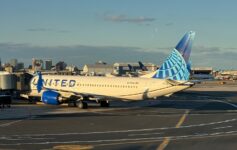For travelers, perhaps there is one bright spot in the ongoing fight in Washington over deficit reduction and the debt celling: reduced taxes on airfares. After failing to pass legislation to keep the Federal Aviation Administration operating yesterday, a number of airline taxes expired at midnight last night. Among them:
Airlines were expected to stop collecting the 7.5 percent ticket tax; a separate excise tax of $3.70 per segment, or a takeoff and landing; a $16.30 tax on international arrivals and departures; a 6.25 percent tax on freight shipments, and other levies, according to a Treasury Department spokeswoman.
Airlines would continue to collect the passenger security fee of $2.50 per segment and the “passenger facility charge,” or PFC, of up to $18 per round trip, which helps pay for local airport projects.
Democrats cried foul over a House provision inserted by Republicans that would make it harder for railroad and airline workers to unionize and a compromise could not be reached in time.
Theoretically, you can now save about 10% off a/i prices with the reduced taxes, but be careful: airlines like American and US Airways have stealthily raised fares to compensate for the reduced taxes. United, Virgin American, And Delta have not raised fares (yet) so you can save money purchasing tickets through them.
If there is something you have been eyeing, book now rather than later: airlines could raise fares at anytime. And I’d give Congress about a week to rectify this situation.
In the meantime, I am already looking into mileage runs opportunities for next year.




If United ends up raising fares, my prediction is it wouldn’t happen until Monday. Don’t think they get the revenue management crew called in over the weekend to make any adjustments.
farecompare.com guy says otherwise – increases are already loaded supposedly
@Mike: Correct.
Virgin America, Frontier, Alaska are the only three that remain.
I humbly stand corrected. Wow. Didn’t think UA would change ’em until Monday. Extra revenue=more profit. (sigh).